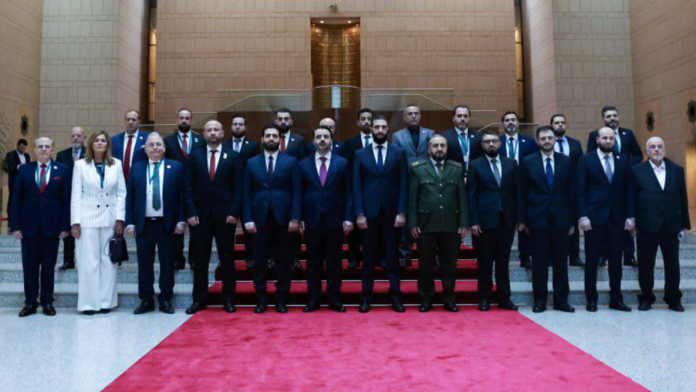Syria’s new transitional government took office on Saturday, nearly four months after the Assad family was removed from power. The new authorities in Damascus aim to restore stability to the war-affected nation.
A diverse cabinet for a new era
The 23-member Cabinet reflects Syria’s religious and ethnic diversity. It is the first government in the country’s five-year transitional period and replaces the interim administration formed in December after Bashar al-Assad’s removal, according to The Associated Press.
Unlike previous administrations, this government has no prime minister. Under the temporary constitution, signed by interim President Ahmad al-Sharaa earlier this month, a secretary-general will oversee government affairs.
Government formation and key appointments
The government was announced ahead of Eid al-Fitr, which marks the end of Ramadan and begins in Syria on Monday. While many ministers are new, the foreign affairs and defence ministers have retained their positions. Interior Minister Anas Khattab previously led the intelligence department.
In a speech, President al-Sharaa said, “The formation of this government shows our shared commitment to building a new state.”
Defence Minister Murhaf Abu Qasra stressed his goal of creating a professional army “by the people and for the people.”
The new administration does not include members of the US-backed, Kurdish-led Syrian Democratic Forces (SDF) or the autonomous civil administration in northeast Syria. However, President al-Sharaa and SDF commander Mazloum Abdi recently signed a major agreement in Damascus. The deal establishes a nationwide ceasefire and integrates the US-backed force into the Syrian army.
Among the newly appointed ministers is Hind Kabawat, a Christian activist who has opposed Assad’s rule since the conflict began in 2011. She will serve as Minister of Social Affairs and Labour. Raed Saleh, former head of the Syrian Civil Defence—known as the White Helmets—will take on the role of Minister for Emergency and Disaster Response. Mohammed Terko, a Damascus-based Syrian Kurd, has been named Minister of Education.
Mohammed al-Bashir, who led the interim government after Assad’s removal, is now Minister of Energy. His main responsibility is to restore the country’s electricity and oil sectors, both of which suffered extensive damage during the conflict.
